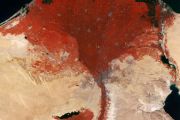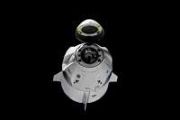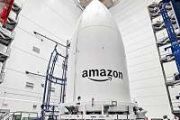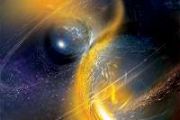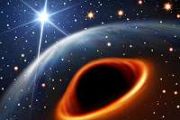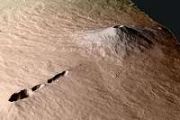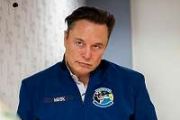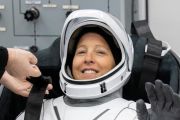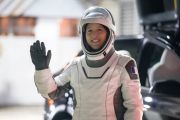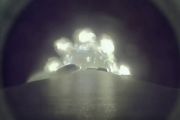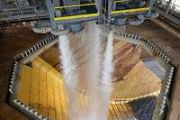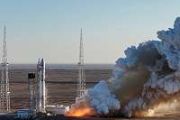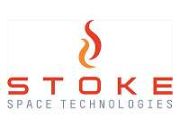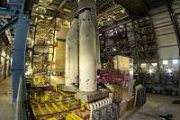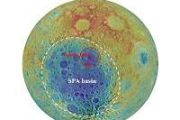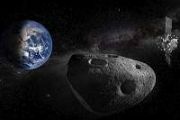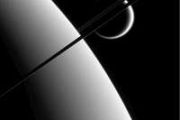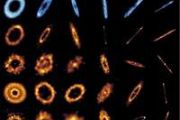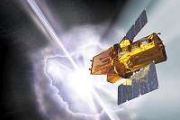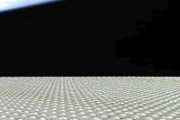
Copernical Team
Seed-sized space chip
 Image:
Seed-sized space chip
Image:
Seed-sized space chip SpaceX catches Starship booster again, but upper stage explodes
 Hours after Jeff Bezos's Blue Origin nailed its first-ever orbital mission, SpaceX seized back the spotlight on Thursday as its latest test of Starship, its gargantuan next-generation megarocket, ended with the upper stage dramatically disintegrating over the Atlantic.
In terms of sheer excitement, Elon Musk's company didn't disappoint, underscoring its technical prowess by catching the fir
Hours after Jeff Bezos's Blue Origin nailed its first-ever orbital mission, SpaceX seized back the spotlight on Thursday as its latest test of Starship, its gargantuan next-generation megarocket, ended with the upper stage dramatically disintegrating over the Atlantic.
In terms of sheer excitement, Elon Musk's company didn't disappoint, underscoring its technical prowess by catching the fir Bezos' Blue Origin has successfully launched its New Glenn rocket to orbit, a feat 15 years in the making
This request seems a bit unusual, so we need to confirm that you're human. Please press and hold the button until it turns completely green. Thank you for your cooperation!
Press and hold the button
If you believe this is an error, please contact our support team.
185.132.36.159 : 9ecf28a6-ff7c-4139-864d-95cfcdd9
Space News: The Final Frontier of Exploration and Innovation
 Space exploration has always been a fascinating field, full of groundbreaking discoveries and innovative technologies. In recent years, the space industry has undergone significant transformations, driven by both government agencies and private companies. As we look toward the future, the possibilities seem endless. From new missions to explore distant planets to advancements in satellite techno
Space exploration has always been a fascinating field, full of groundbreaking discoveries and innovative technologies. In recent years, the space industry has undergone significant transformations, driven by both government agencies and private companies. As we look toward the future, the possibilities seem endless. From new missions to explore distant planets to advancements in satellite techno Connections between Space and the NFL
 Space occupies the minds of every NFL player. However, the space on their minds is on the football field. Quarterbacks and Wide Receivers want to find it, while the offense wants to shut it down. Regarding space travel, the solar system, and NASA, the NFL links are less obvious, but the two fields share many connections despite that.
Space occupies the minds of every NFL player. However, the space on their minds is on the football field. Quarterbacks and Wide Receivers want to find it, while the offense wants to shut it down. Regarding space travel, the solar system, and NASA, the NFL links are less obvious, but the two fields share many connections despite that. Stranded astronaut Suni Williams performs spacewalk at ISS
 NASA astronaut Sunni Williams, one-half Boeing Starliner crew who have been stuck on the International Space Station for months, took part in a spacewalk on Thursday to do some repairs to the orbiting laboratory.
Williams joined astronaut Nick Hague in the spacewalk to remove and replace a rate gyro assembly that helps provide orientation control for the ISS, install patches to cover da
NASA astronaut Sunni Williams, one-half Boeing Starliner crew who have been stuck on the International Space Station for months, took part in a spacewalk on Thursday to do some repairs to the orbiting laboratory.
Williams joined astronaut Nick Hague in the spacewalk to remove and replace a rate gyro assembly that helps provide orientation control for the ISS, install patches to cover da SpaceX catches Starship booster but upper stage explodes
 Hours after Jeff Bezos's Blue Origin nailed its first-ever orbital mission, SpaceX seized back the spotlight on Thursday as the latest dramatic test of Starship, its gargantuan next-generation megarocket, ended with the upper stage blowing up over the Atlantic.
In terms of sheer excitement, Elon Musk's company didn't disappoint, underscoring its technical prowess by catching the first stage
Hours after Jeff Bezos's Blue Origin nailed its first-ever orbital mission, SpaceX seized back the spotlight on Thursday as the latest dramatic test of Starship, its gargantuan next-generation megarocket, ended with the upper stage blowing up over the Atlantic.
In terms of sheer excitement, Elon Musk's company didn't disappoint, underscoring its technical prowess by catching the first stage Latest moon mission carries a new reflection on history
This request seems a bit unusual, so we need to confirm that you're human. Please press and hold the button until it turns completely green. Thank you for your cooperation!
Press and hold the button
If you believe this is an error, please contact our support team.
185.132.36.159 : 31de9a0d-c4ab-480a-a675-972346d9
Musk's Starship set for launch after Bezos orbital triumph
This request seems a bit unusual, so we need to confirm that you're human. Please press and hold the button until it turns completely green. Thank you for your cooperation!
Press and hold the button
If you believe this is an error, please contact our support team.
185.132.36.159 : 54b11211-b2de-49e8-8a9f-0e9a1060
Hubble traces hidden history of the Andromeda Galaxy

The largest photomosaic of the Andromeda galaxy, assembled from NASA/ESA Hubble Space Telescope observations, unveils hundreds of millions of stars. It took more than 10 years to collect data for this colorful portrait of our neighbouring galaxy and was created from more than 600 snapshots. This stunning, colourful mosaic captures the glow of 200 million stars, and is spread across roughly 2.5 billion pixels.





